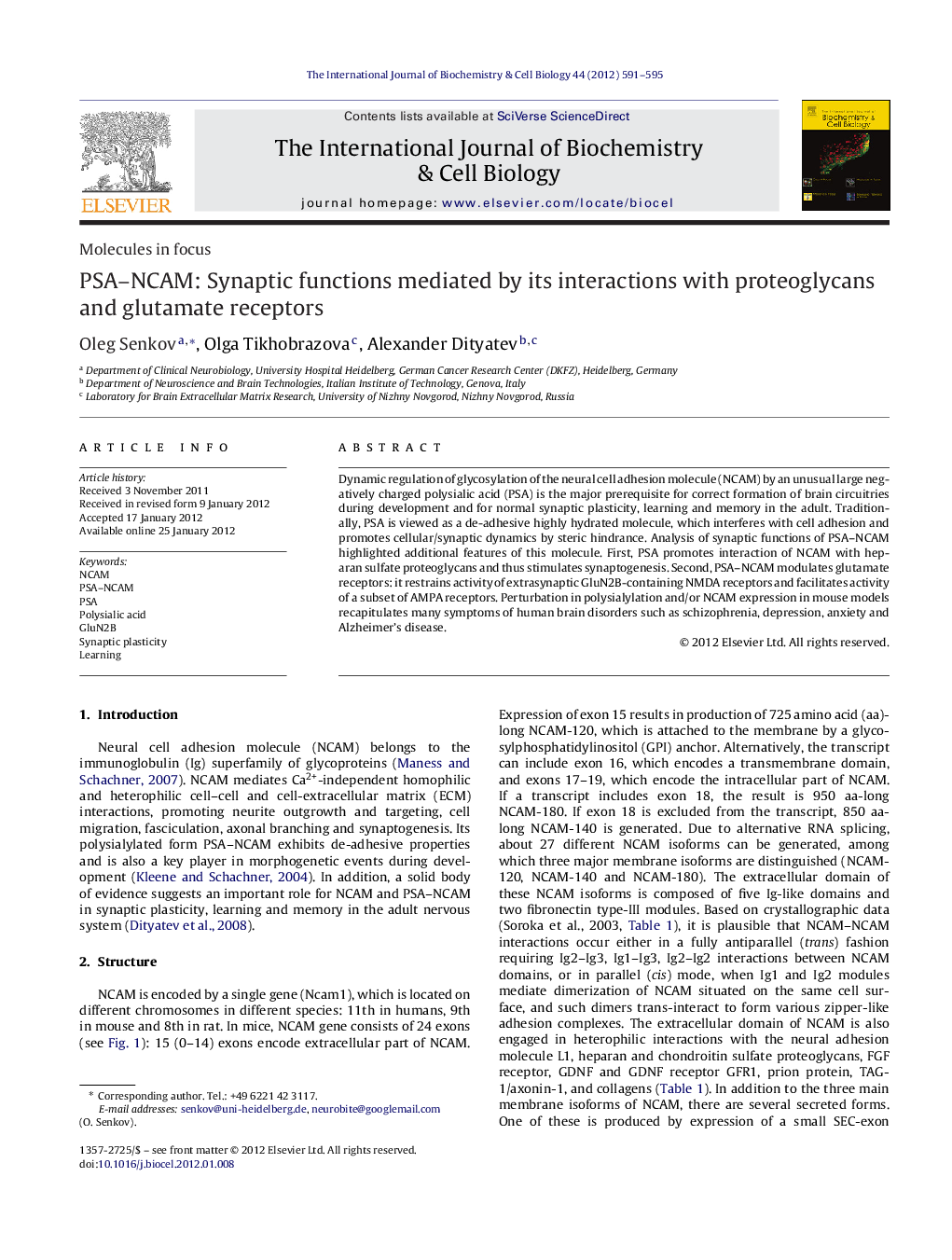| Article ID | Journal | Published Year | Pages | File Type |
|---|---|---|---|---|
| 1983863 | The International Journal of Biochemistry & Cell Biology | 2012 | 5 Pages |
Dynamic regulation of glycosylation of the neural cell adhesion molecule (NCAM) by an unusual large negatively charged polysialic acid (PSA) is the major prerequisite for correct formation of brain circuitries during development and for normal synaptic plasticity, learning and memory in the adult. Traditionally, PSA is viewed as a de-adhesive highly hydrated molecule, which interferes with cell adhesion and promotes cellular/synaptic dynamics by steric hindrance. Analysis of synaptic functions of PSA–NCAM highlighted additional features of this molecule. First, PSA promotes interaction of NCAM with heparan sulfate proteoglycans and thus stimulates synaptogenesis. Second, PSA–NCAM modulates glutamate receptors: it restrains activity of extrasynaptic GluN2B-containing NMDA receptors and facilitates activity of a subset of AMPA receptors. Perturbation in polysialylation and/or NCAM expression in mouse models recapitulates many symptoms of human brain disorders such as schizophrenia, depression, anxiety and Alzheimer's disease.
